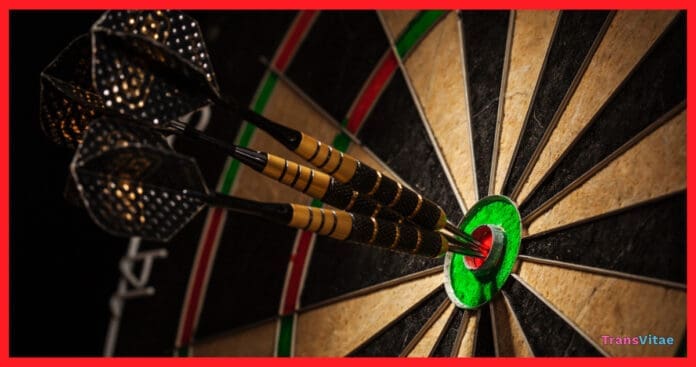In the world of professional sports, breaking boundaries often means facing adversity, and Noa-Lynn van Leuven’s journey is no exception. This remarkable Dutch darts player has recently etched her name in the annals of history as the first transgender athlete to win both a PDC Women’s Series event and a Challenge Tour title in a mixed field.
Van Leuven’s victories represent more than just personal achievement; they underscore a growing trend of inclusivity in sports that is, unfortunately, paralleled by an escalation in targeted attacks against transgender athletes, fueled by social media’s amplification of transphobic rhetoric.
Noa-Lynn van Leuven, hailing from the Netherlands, achieved a monumental feat by outplaying numerous male PDC event winners in Germany, securing a £2,500 challenger event. Following this, she demonstrated her prowess in Wigan at a women-only event, triumphing over notable players including Fallon Sherrock and world No 1 Beau Greaves. Yet, her groundbreaking success was not met with universal applause.
Tennis legend Martina Navratilova expressed disapproval of darts’ transgender policy, advocating for the exclusive participation of natal females in women’s events. This sentiment echoes a broader controversy surrounding the inclusion of transgender women in female sports categories, a topic that has ignited debate among academics and athletes alike.
Navigating the Challenges
The policy governing the participation of transgender players in darts is clear, requiring a testosterone level below 10 nmo/L for at least 12 months and a stable gender identity for no less than four years.
Despite these stringent guidelines, Van Leuven has faced harsh criticism and outright hostility, including deplorable wishes for her demise and assertions that she does not belong in the sport.
Notably, Deta Hedman, a seasoned darts competitor, has argued against the inclusion of trans women in women’s darts, suggesting they have an unfair advantage due to the lack of menstrual-related challenges, and citing studies to support her claim.
Noa-Lynn van Leuven, who transitioned at 17, has consistently chosen to respond to her critics where it matters most: on the darts board. Now ranked ninth on the Challenge Tour Order of Merit, she aspires to compete in the World Darts Championship, potentially facing legends like Michael Van Gerwen.
The Role of Social Media in Amplifying Transphobia
Her story is a testament to resilience in the face of adversity, but it also highlights a concerning trend: the rise of targeted attacks against transgender individuals in sports, often exacerbated by social media.
Social media platforms have become arenas where transphobic sentiments are not only voiced but amplified, with some of the most significant conservative accounts leading the charge. This digital megaphone has made it easier for hateful ideologies to spread, often unchecked, creating a hostile environment for transgender athletes striving to compete authentically.
The vitriol directed at figures like Van Leuven is emblematic of a larger societal challenge: balancing the celebration of diversity and inclusivity with the protection of individuals from harm.
This escalation of targeted attacks against transgender athletes raises pressing questions about the role of social media companies in moderating content and the responsibility of society at large to foster a more inclusive sporting environment.
It also underscores the need for continued advocacy and education to combat misinformation and prejudice. As the debate over the inclusion of transgender athletes in sports continues, stories like Noa-Lynn van Leuven’s serve as powerful reminders of the human cost of exclusion and the enduring strength of those who fight for their right to compete.
The Bottom Line
Noa-Lynn van Leuven’s achievements in the world of darts are not just victories on the scoreboard; they are milestones in the ongoing struggle for transgender rights and acceptance in sports. As society grapples with these issues, it’s crucial to remember that at the heart of every controversy are real people, fighting not just for trophies, but for respect, understanding, and the simple right to be themselves.
In the face of adversity, Van Leuven’s story is a beacon of resilience, challenging us to envision a world where everyone has the freedom to pursue their passions without fear of discrimination or harassment.


